Maria Kalesnikova is an artist, a flutist and a politically committed woman. But a woman, or a man, committed to democracy in Belarus is in danger. Maria Kalesnikava was arrested in September 2020 and sentenced to 11 years in prison. In November 2021, we devoted this article to her while she was detained and under heavy surveillance. Since February 14, 2023, we have no reliable information on her. She has simply disappeared into a Belarusian jail. Neither her father nor her sister Tatyana Khomich, a tireless spokeswoman, have received any news from the women's penal colony No. 4 in Gomel, where she is said to be held. We are currently awaiting the decision of the United Nations Working Group, which will recognize the enforced disappearance of Maria Kolesnikova and send an official request to Belarus to inform the authorities of the activist's whereabouts and give her father the opportunity to visit her; recalling that the incommunicado detention of Belarusian prisoners constitutes cruel and inhuman treatment and may amount to torture.
"When her letters still arrived, Masha would often share her thoughts on how she was coping with the conditions." reports her sister Tatyana.
In Belarus, 655 people have been sentenced to restricted freedom, and over 170 women are being held in detention centers and colonies. After 2020, women became victims of enforced disappearance, torture, abuse and other forms of physical and psychological pressure, such as having their children taken away from them and placed in state care.
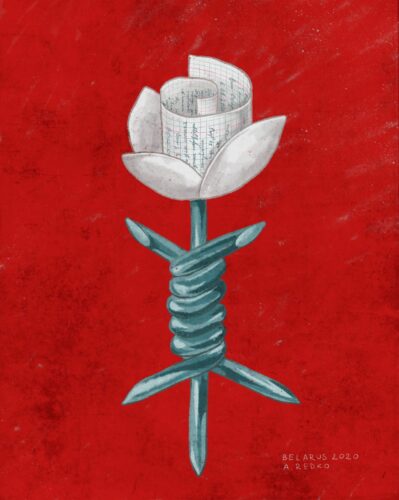
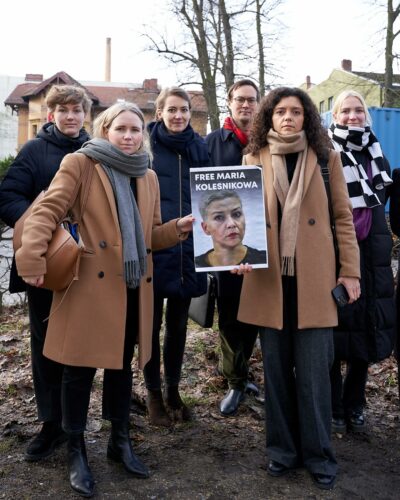
This tendency towards violence and coercion on the part of authoritarian regimes, which are increasingly muzzling artists, has become more pronounced in recent years, while at the same time the possibilities for informing oneself and sharing knowledge and cultural goods have been enhanced by social networks and digital tools. A trend that is also being felt in our liberal democracies.
They are everywhere, near and far, men and women, young and old, unknown and famous. They play music, sing, go on stage, dance, make films, draw, write books in conditions where every word, every sound, every image is torn from the shadows and anguish.
Paysages Humains is a space, independently, where artistic freedom is celebrated, and where the diversity of all cultural expressions is encouraged. I would like to remember today that " artistic freedoḿ is the freedoḿ to imagine, create and distribute diverse cultural expressions without government censorship, political interference or pressure from non-state actors. It includes the right of every citizen to access these works and is essential to the well-being of societies " following the 2005 Unesco Convention.
I would like to remind us that defending this freedom of artistic expression cannot be dissociated from defending the freedom of the people themselves.
And while Paysages Humains is not a political platform, I would like to take advantage of our chance to enjoy this freedom of expression, here and now, to make visible their disarray and resistance. That's why I'm talking to you about Maria Kalesnikava, a Belarusian musician and member of the opposition to President Alexander Lukashenko that formed during the protests of 2020.
Maria Kalesnikava was kidnapped on September 7, 2020 and forced into exile. She was taken by force to the Ukrainian border, where she was arrested after tearing up her passport. Like many others, she chose to remain in her country.
On September 6, she was tried behind closed doors and sentenced to 11 years' imprisonment for "plotting to seize power" and "calling for actions undermining national security".8.
A flutist trained at the Belarusian State Academy of Music, Maria Kalesnikava obtained two masters degrees in Stuttgart in 2012 and has since divided her career between her country and Germany. In 2017 she co-founded Artemp, an art collective, and in 2019 she became artistic director of the OK16 cultural club in Minsk.
To support his action and courage, he has been awarded several prizes: the "Intrepid Speech" prize in Germany (Rhineland-Palatinate), the Sakharov Prize awarded by the European Parliament, and the Vaclav Havel Human Rights Prize 2021. In his book The Power of the Powerless, Vaclav Havel, a great resistance fighter and later President of the Czech Republic, gave an excellent description of the unsuspected power of civil society to build small alternative societies, music groups, sports associations and literary clubs in the face of authoritarianism and censorship.
The Axel Springer Foundation for Freedom today installed a street sign in front of the Belarusian embassy in Berlin, bearing the name of imprisoned Belarusian opposition figure Maria Kolesnikova.
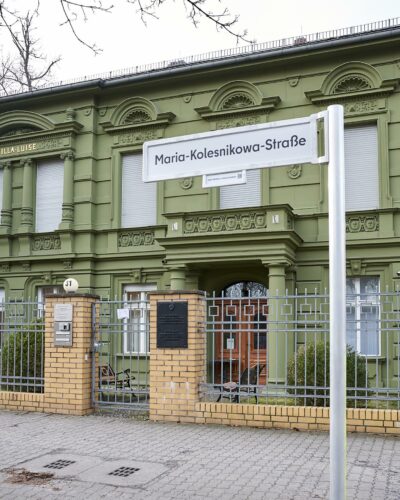
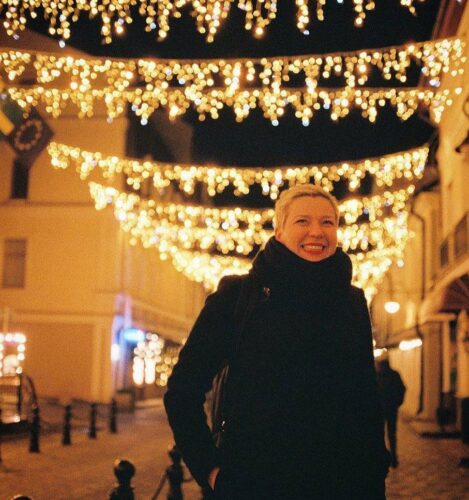
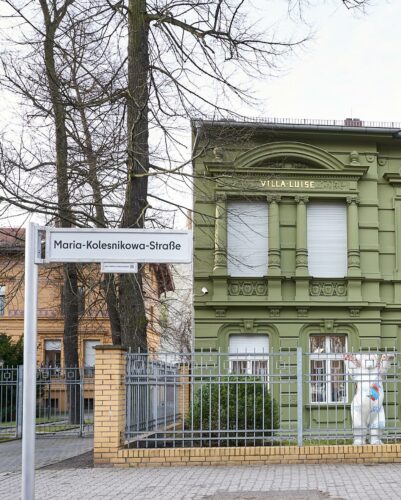
Every day, initiatives in support of Maria are born: messages or postcards are posted on her Facebook page, concerts are organized on digital platforms, works are written and produced.
I'd like to mention two among many:
" Dream House " by the Mixed Sound Personnel(Viktoriia Vitrenko, voice, music & Lucas Gerin, e-drums, music) feat. Pauline Drand (lyrics, music, voice & text) & Vj Yarkus (video art), in which her friends integrated Maria's latest flute piece, recorded in Stuttgart, and electronically processed the voice from her last speeches.
And " À l'air libre ", a series of works for flute performed by Keiko Murakami and written by French composer Frédéric Durieux, to demand the release of Maria Kalesnikava. The first episode was performed on November 22 and the second on November 15, 2023.
Today I've told you about Maria Kolesnikova, but I could mention so many other names of artists like her, persecuted, exiled or imprisoned, such as : Ayesha Khan, Afghan singer exiled in Spain fleeing the Taliban, Kurdish singer Nüdem Durak sentenced in 2015 to 19 years in prison, Cuban performer Luis Manuel Otero Alcnatara sentenced in 2022 to 5 years in prison, Ashraf Fayad, poet spent 8 years in Saudi Arabian prisons and was finally released on August 23, 2022 but how many others remain detained.
And since figures can sometimes better illustrate what words are trying to say, I encourage you to visit the website of Freemuse, an independent international non-governmental organization that defends freedom of artistic expression and cultural diversity, and whose 2020 report is alarming.
Sandrine Maricot Despretz



)